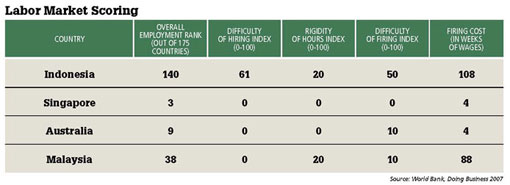
Yugoslav strongman Josip Broz Tito died on May 4, 1980, and his funeral was witnessed by more politicians and state delegations than any other in history. Even though Marshall Tito might be dead, his ideas are alive and well.
In 1948, Tito made his mark by breaking ranks with Stalin. Moscow was quick to label Tito’s form of communism revisionism. After all, the hallmark of Tito’s foreign policy was the Non-Aligned Movement, which counted Tito’s Yugoslavia (along with Nasser’s Egypt and Nehru’s India) as a founding member, and at home, Yugoslavia’s unique form of decentralized “market socialism” featured worker-managed firms.
The worker-managed firm idea attracted much interest and many camp followers around the world. In Yugoslavia, however, the system failed to produce enough jobs to fully employ Yugoslavs because the socialist worker-managers viewed new additions to the labor force as “profit” poachers who would cut into their share of the “profit” pie. In consequence, Yugoslavia faced a chronic surplus labor problem.
To solve the problem and mask the flaws in the worker-managed system, Tito came up with a simple, but ingenious, economic strategy: he opened the Yugoslav borders — at least by communist standards — and exported surplus labor. At its peak in the early 1970s, there were over a million Yugoslavs, about 11% of the labor force, working in Western Europe. The hard-money remittances (primarily German marks) that those Yugoslavs sent home amounted to as much as 30% of Yugoslavia’s exports. Tito’s broom worked like a charm.
Like Yugoslavia, Indonesia exports surplus labor. In Indonesia, laws governing businesses’ hiring and firing practices have created a dysfunctional labor market. As indicated in the table, Indonesia’s labor market is ranked 140th out of 175 in the World Bank’s Doing Business 2007 report (just one notch above Iran).

It’s difficult for Indonesian businesses to hire new workers and costly to fire them. The labor market mess forces an estimated 70% of the labor force to work “off the record” in the relatively unproductive informal sector of the economy and 11% to remain unemployed. An estimated 3 million are legally working overseas, with at least another million doing so illegally, and they sent home at least $3.5 billion in remittances last year.
As Indonesia uses Tito’s broom to export its surplus labor, it is using countries like Singapore, Australia and Malaysia as a dustpan, with more than half of all Indonesian contract laborers abroad working in Malaysia and the permanent Indonesian migrant community in Australia growing at almost 10% per year since 2001.
The reason? Look at the accompanying table: Indonesia scored very poorly (61) on the Doing Business 2007 report’s Difficulty of Hiring index, the component of the labor market score that measures the restrictions employers face when hiring workers. Neighboring countries — Singapore, Australia and Malaysia — faced none of these restrictions and consequently each registered a perfect score of 0 on the Difficulty of Hiring index.

The Doing Business 2007 report tells a similar story for the following metrics: Rigidity of Hours, Difficulty of Firing and Firing Costs. Indonesian labor laws impose far more restrictions, expenses and procedures on companies than do its neighbors.
In fact, an Indonesian business requires third-party approval before it can even fire redundant workers, and each firing costs an average of 108 weeks of the employee’s salary (compared to a cost of 0 in the US.). Indonesia’s labor market is inflexible and unable to respond to competitive pressure and to create an adequate number of jobs.
Labor market dysfunction explains, in part, Indonesia’s anemic overall economic performance since the collapse of the rupiah in 1997. Indonesia’s GDP per capita has grown at a meager 1.18% rate. It took seven years for it to return to pre-crisis levels!
It’s not surprising that Indonesia is dumping labor into countries with better functioning labor markets and more rapidly growing economies. It’s time to reform Indonesia’s labor markets so that Tito’s broom can be put back into the closet.
Author Steve H. Hanke

0 responses on "Abolish Rigid Labor Markets"